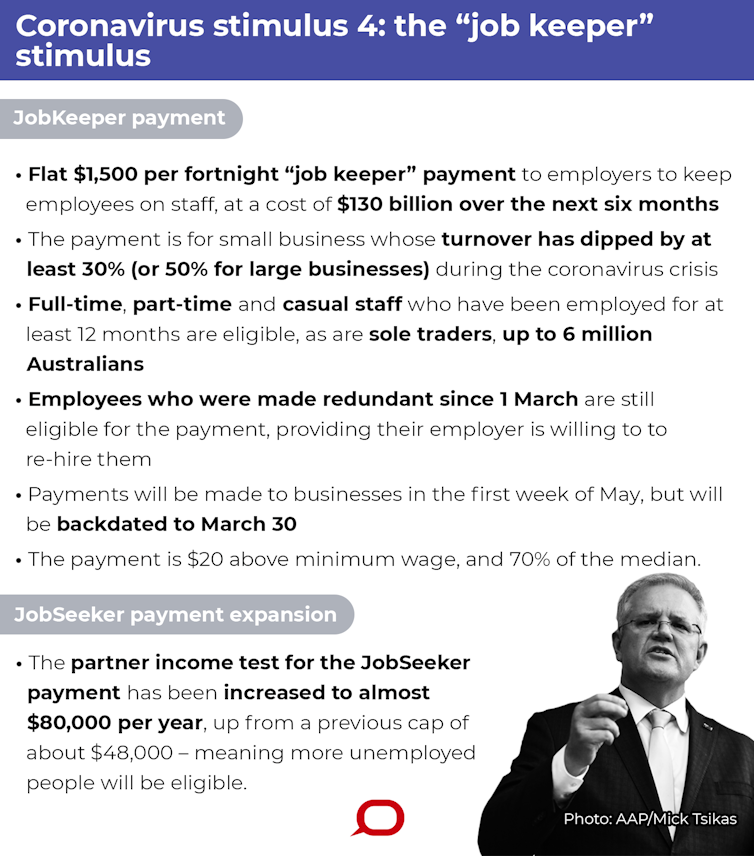Lack of help for local councils in coronavirus package undercuts industry support
GUEST OBSERVATION
Local governments are not eligible for the JobKeeper Payment, while major industries like construction are. Although the JobKeeper scheme has been broadly welcomed, it is a mystery to business why Australia’s 537 local councils, which provide vital support for industries like construction, are not eligible. The failure to include local councils (and their wholly owned corporations) will undermine the economic and social impact these policies are meant to have.
This just doesn’t make sense to business or local government. Business and industry are depending on their partnerships with local government to get through the coronavirus crisis. But local councils, which employ almost 200,000 people, are already laying off thousands.
Since construction directly employs about 1.2 million people (9.2% of the workforce) and indirectly many more, construction sites remain “exempt” as the government closes down all non-essential businesses to combat coronavirus. As Urban Taskforce chief executive Tom Forrest said:
The building and construction industry will be a critical player in driving the economy through this crisis.
The federal government’s A$130 billion wage subsidy will cover businesses paying their employees A$1,500 a fortnight each for up to six months. Private businesses (including not-for-profits) will be eligible for the subsidy if they meet the criteria.

The Conversation, CC BY-ND
Self-employed individuals will similarly be eligible to receive the JobKeeper Payment.
Registered charities will be eligible if their turnover has fallen or will likely fall by 15% or more relative to a comparable period.
Non-government schools and private vocational education providers are also eligible.
What is happening to local government?
Local government misses out. Yet revenues have been hit extremely hard since local government raises only 3.6% of its income from taxation and 90% from its own sources. These include rates and fees for services – many of which have had to close.
As a result, city council revenues have plummeted. For example, Blacktown City Council in Sydney estimates its monthly revenue has fallen by about A$1.7 million. The council employs around 2,300 people who serve a population of 400,000 people.
Like all local governments, it is responsible for a wide range of critical local services that support industries like construction that are exempt from current shutdowns. Councils provide planning and development approvals, childcare centres (26 in Blacktown’s case), waste management, infrastructure (such as roads and footpaths, parks, sporting grounds and swimming pools), housing, community amenities, transport and communications, recreation and culture and general public services.
The majority of freight tasks, which are central to keeping the economy going, start and finish on local government-controlled roads. These roads add up to about 662,000km in length – about 75% of the total national road length. Of 251.2 billion kilometres travelled in 2016, 142.1 billion occurred in capital cities.
Local councils also fund and support major construction projects. To return to the example of Blacktown, the A$76.5 million Warrick Lane development is part of the city centre transformation, which will provide major economic and social benefits for the people of Blacktown.
The Warrick Lane redevelopment is a major construction project that wouldn’t be happening if not for the city council.
Another Blacktown City project is the International Centre of Training Excellence, a multisport high-performance education, sports medicine and accelerated recovery facility. It’s due to open in 2022.
Nationwide, local government owns and manages non-financial assets with an estimated written-down value of A$408 billion in 2015-16. Operational spending by councils totalled about A$35 billion in that year.
A partner of industry and business
Local government spending goes into providing industry support and services across the nation. If you take these services and supports away you undermine government efforts to stimulate industries like construction to get us through this crisis and recover from it.
You also introduce the risk that development approvals are granted without thorough assessments. That’s likely to lead to new problems down the line.
As the federal government says, keeping people in work and businesses open will lay the foundations for a stronger economic recovery once the coronavirus crisis passes. But local government support is key to this strategy. Most people would be concerned to know their local councils are not being supported in the same way as private businesses – some of which have accumulated millions in profits and are incorporated overseas.
The federal government rightly talks about partnership, collaboration and collective responsibility to get through this crisis. Local council activities are critical to the productivity, well-being and liveability of local communities and cumulatively to the nation at this time.
Disaster management experience and guidelines tell us the response to any crisis must be bottom-up as well as top-down. This means local government’s role is crucial. How can this be achieved without a functioning local government supporting industry and communities to get through this pandemic?
Martin Loosemore, Professor of Construction Management, University of Technology Sydney
This article is republished from The Conversation under a Creative Commons license. Read the original article.
